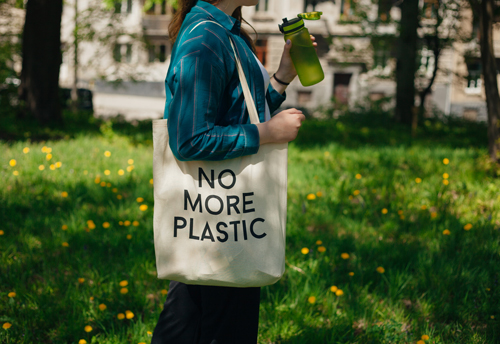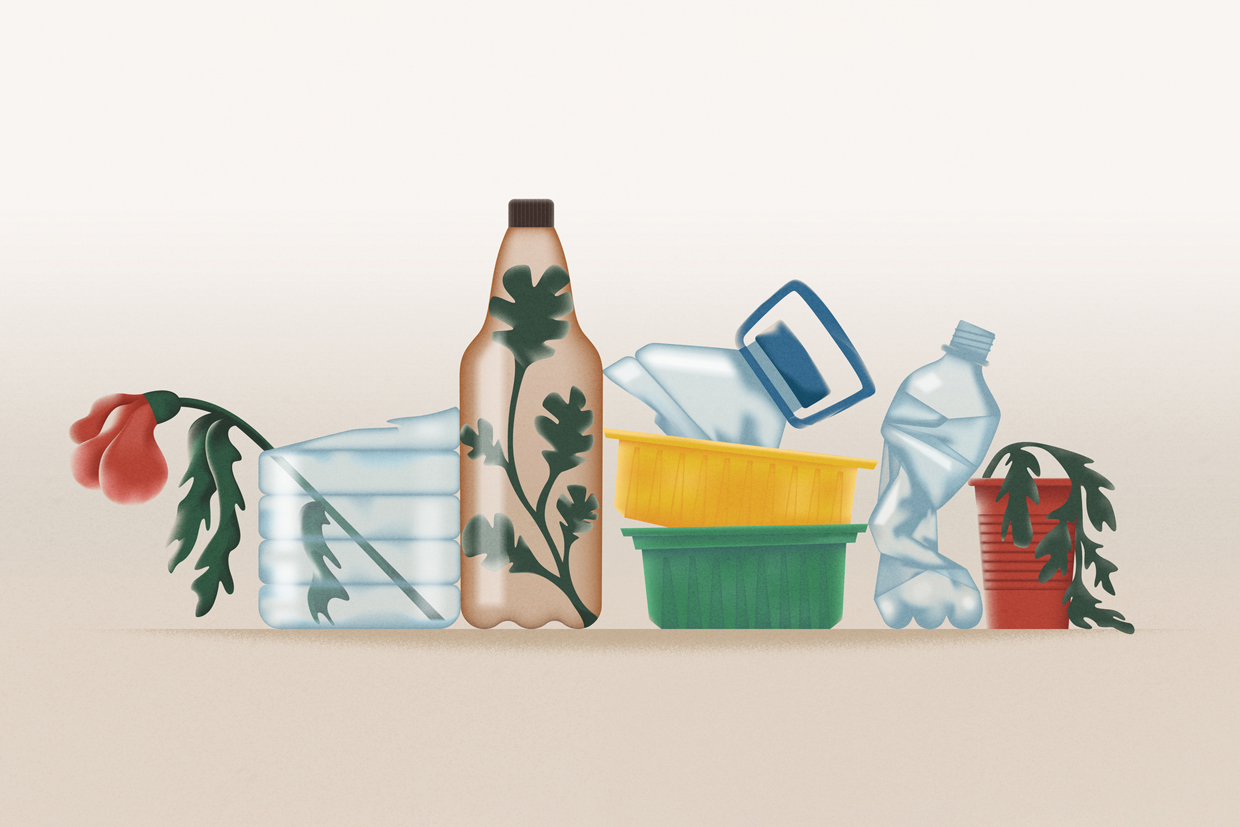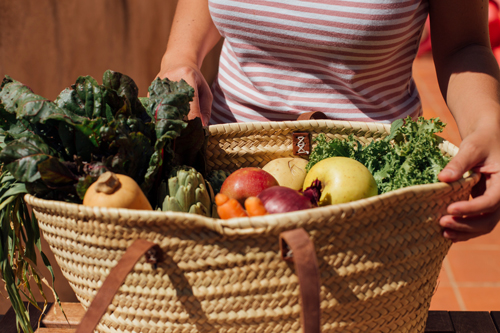Though “sustainability” was officially defined in 1987 as “meeting the needs of the present without compromising the ability of future generations to meet their own needs,” for a while, it was still just a buzzword. Now, it’s finally sinking in that our nation is grappling with surmounting concerns over climate change’s immediate and long-term effects on our planet. As a result, there’s a greater push for people to start to live more authentically sustainable lives.
“Making sustainable choices that avoid the depletion of natural resources and maintain ecological balance is fundamental,” says Lea D’Auriol, founder of Oceanic Global, which aims to inspire people to care deeply for the ocean.

Aside from the direct impact sustainability has on our planet, there are other reasons why someone might want to become more sustainable in their day-to-day life. For starters, eating more sustainably, i.e., avoiding foods that contain pesticides or antibiotics, can lead to healthier eating. Changing your spending habits also plays a role in our economy: Purchasing sustainably also gives you the power to determine what businesses succeed or fail. “Your smallest decision on what to buy, or not to buy, is shaping what you find on the store shelves,” says Danielle Leoni, Chief Sustainability Officer of The Breadfruit & Rum Bar and Big Marble Organics. “Make the changes whenever you can, and you’ll change the world.” Living sustainably is also financially smart, according to Jean-Louis Warnholz, co-founder and CEO of Future, a financial platform designed to democratize climate-smart living and encourage consumers to make sustainable behavior changes. “We’ve learned in our own life that often the choice that’s sustainable for the planet is also more sustainable for our wallet,” he says. “For example, we save a lot of money driving electric and embracing secondhand shopping.”
If you’re beginning your journey on living more sustainably or you’re interested in learning new ways to continue your environmentally friendly efforts, our sustainability experts share their best tips on becoming your own activist.
Shop second-hand clothing
As much as you enjoy buying new and trending clothing, think twice about how your shopping habits affect the environment. Sixty percent of our clothes are made of polyester, nylon, and spandex explains D’Auriol. These plastic-derived fibers contribute to microplastic pollution. Warnholz recommends shifting apparel shopping to secondhand. “The quality is generally the same — we shop at the same brands and are saving a bunch of money,” he says.

Go electric
Our society is moving toward electric cars to reduce carbon emissions and help save the environment. “From the car we drive to the way we power our home, we found going electric to be both cheaper and convenient,” says Warnholz. “The range of options available today has skyrocketed, so making this move today is probably much easier than it was just a few years ago.”
Support sustainable businesses
There are countless businesses dedicated to doing the right thing for people and the planet, notes Ashlan Cousteau, sustainability expert, journalist and founder of SeaWeed Naturals. “Instead of buying products that are made to be used once or twice and then are either thrown away or fall apart, buy products that restore our planet and resources, restore ourselves, and restore society,” she says. “A product, too, can be sustainable so long that it is designed with the materials and a full lifecycle that does not harm the environment, deplete natural non-renewable resources, and is made in a socially responsible way. Every time you spend, you choose to support a type of business and industry. Choose to support businesses that are treading lightly on the planet, that support local communities, that have eco-friendly packaging, and that source sustainable food items,” adds D’Auriol.
Shop at a farmer’s market or from local producers
Not only does shopping locally cut down on shipping costs and gas emissions, but it also gives you an opportunity to ask how the food is grown. “Most farmers will be proud to tell you all about it if they are doing it responsibly,” says Leoni. “You’ll find freshly harvested food, skip synthetic pesticides, and reduce your carbon footprint. Plus, you’ll be supporting your local economy. The artisans and farmers that struggle the most to survive and help the planet be a bit healthier.”
Reduce or eliminate seafood intake
According to the United Nations Food and Agriculture Organization (FAO), at least 34.2 percent of fisheries are overfished. You can make a difference by reducing or, ideally, eliminating your seafood intake, notes D’Auriol. “Choose local and seasonal seafood that is well managed and choose smaller fish that are lower on the food chain. This helps reduce pressure on keystone species such as top predators,” she says. “Choose invasive species that have detrimental effects on native marine diversity like kelp, seaweed, bivalves like oysters, scallops, clams, and mussels, uni [sea urchin roe], and jellyfish. Avoid eating shark, tuna, shrimp, cod, or salmon.”
Reduce your plastic consumption
A whopping 14 million tons of plastic enter the world’s oceans every year. In addition to using plastic alternatives like stainless steel, glass, and platinum silicone, D’Auriol recommends looking out for Blue Standard Product and Packaging Seals when you are shopping. “Blue’s product and packaging seals verify responsibly sourced plastic-free products and/or packaging and help mitigate greenwashing,” she says.

Spread the word
“Doing what’s right for the planet is often portrayed as hard or costly, but it doesn’t have to be,” says Warnholz. He recommends sharing everything you’ve learned about making changes in your day-to-day life with your friends, family, and colleagues. You never know — it may inspire them to take it upon themselves to do the very same in their lives. “Share examples of what worked well in your life and the impact it has had. You can help hold them accountable to do whatever they can to be part of the solution,” he says.
Reach out to your representatives
Use your right to vote for politicians who share the same concerns about the environment as you do. Meanwhile, you can find representatives by using this database that shows you how to contact them, the causes they care about, the bill they’ve introduced, and the committees they’re on. If you prefer to pick up the phone, you can use Citizen’s Climate Lobby to help craft a script, so you know what to say.








